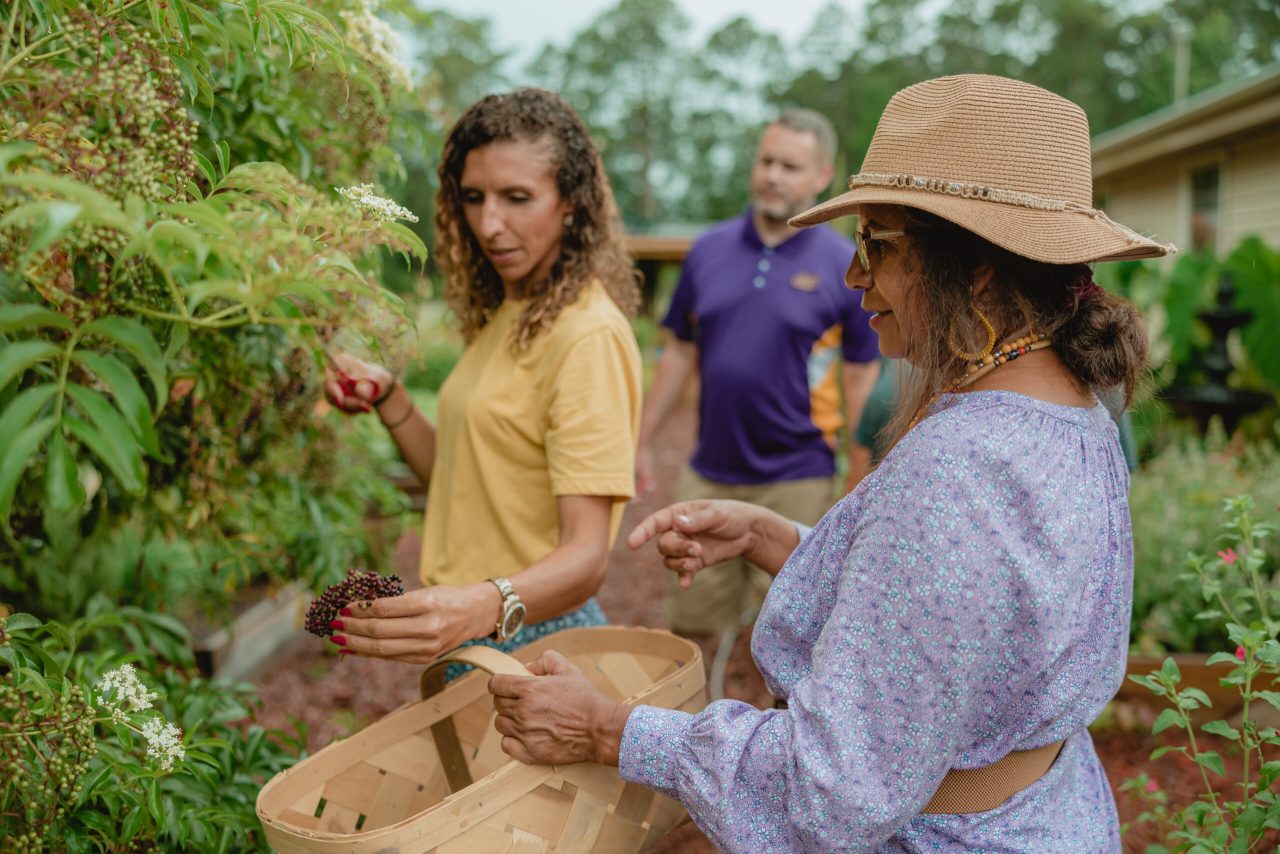Preserving the Health of the Tribe

Along with food, they’re also growing medicine. Elderberry to boost immunity. Mullein for the respiratory tract. Catnip for colicky babies. Some of the same plants their ancestors used for health and wellness, and in many cases, survival. They find them growing in the wild, and harvest sparingly, taking small portions and giving thanks to the plant.
Graham hopes that the longevity of the tribes’ crops will impact the longevity of the people themselves.
Blue Cross and Blue Shield of North Carolina (Blue Cross NC), through the work of the Blue Cross NC Foundation, is supporting Graham’s community, and other tribal communities across the state, through a four-year grant that aims to address long-standing health inequities in North Carolina’s Native American tribes. For the Waccamaw Siouan, the grant has brought them agricultural equipment to reap and sow their crops.
“I’ve told [my fellow tribe members], ‘Hey, the equipment’s here, and if you can use this equipment to make yourself healthier, then that’s a way that we can make the whole tribe healthier,” Graham says.
Aside from agricultural equipment, Blue Cross NC provides the Waccamaw Siouan community with a tribal liaison who works in coordination with Healthy Blue, Blue Cross NC’s Medicaid offering, to best serve the community’s needs.
Their tribal liaison, Teryn Brewington, says that giving Native people a platform is key to helping them overcome their health care challenges.
“Our tribal communities in North Carolina possess overwhelming strengths that have allowed them to survive for thousands of years,” she says. “One of those strengths is their profound understanding of their people. As our state works to improve health outcomes, it’s important to hear Native people’s voices.”
Brewington believes that these voices are best equipped to outline local health care needs, and that understanding each community’s specific needs is the first step to improving its overall health.
“The tribe is the expert and they will be able to best tell us what works for them,” she says.
To foster conversation within the tribe itself, Healthy Blue, through Value-Added benefits, supports the Waccamaw Siouan Talking Circles, groups of tribal members and health care providers who meet for discussions on healing and cultural enrichment.
Healthy Blue also sponsors cultural and community events, like PowWows, approaching health care from a holistic perspective, recognizing the influence that culture and communication have on community health.
Graham strongly believes that her tribe needs additional educational resources on substance use disorder prevention, mental health support, and the importance of self-care—something that doesn’t happen in a community where few people ever retire.
Though life is filled with challenges for the people of the Waccamaw Siouan tribe, they share a culture rooted in generosity, spirituality, and pride of heritage. Their annual PowWow invites the public to come experience the traditions they hold dear, from quilting and weaving to drumming and dancing. It’s also a time for the tribal community to reconnect with each other.
In quieter moments, the Waccamaw Siouan meet to practice gratitude in their healing green space.
“We have a cross there, and a plaque with people of the fallen star at the foot of that cross,” Graham says. “We look to the Great Creator for our healing. May it come through the doctors, plants, or whatever the Creator provides. That’s who we look to as a people.”




